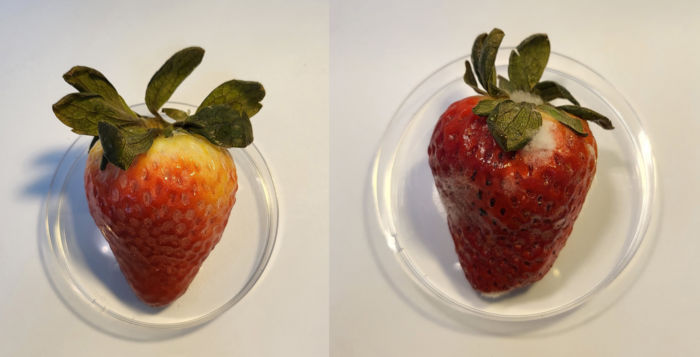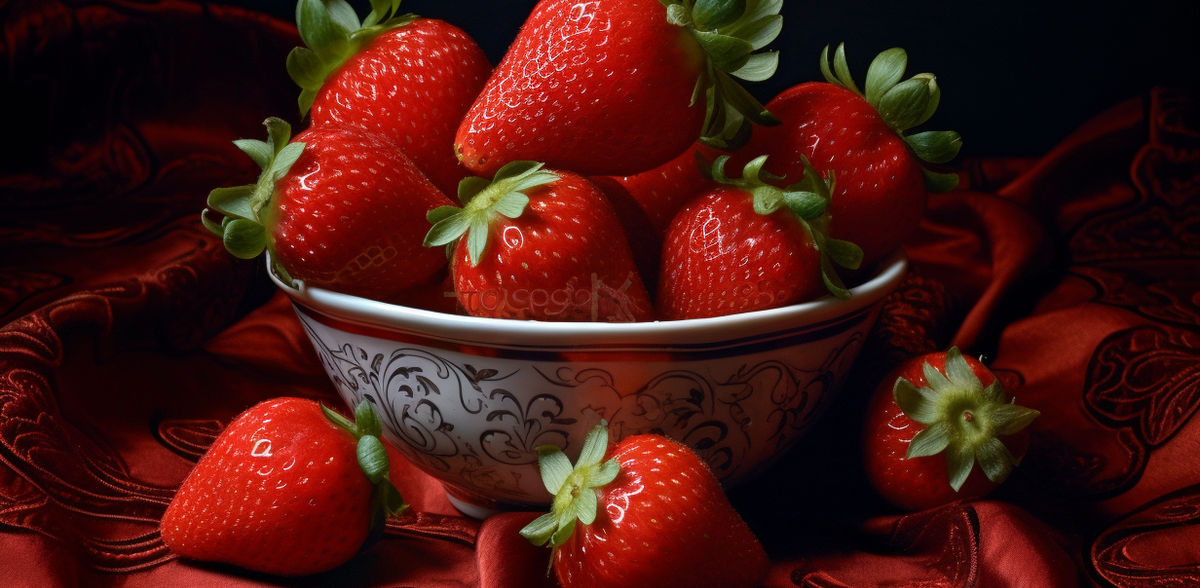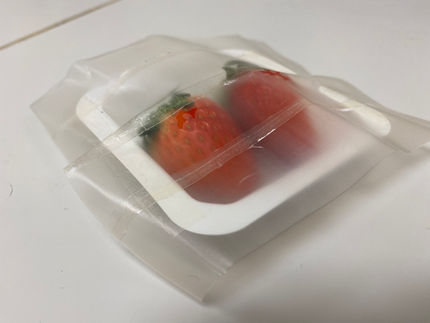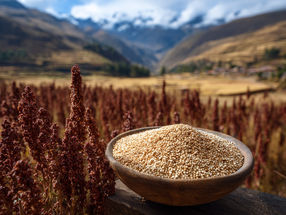An edible CBD coating could extend the shelf life of strawberries
Soon, you’ll be able to get a box of freshly picked, sweet strawberries from the grocery store or local farm stand. But it’s disappointing when you get them home and find that the ones at the bottom have started to rot. To increase the berries’ shelf life, researchers reporting in ACS Applied Materials & Interfaces have incorporated cannabidiol — a non-hallucinogenic compound from cannabis known as CBD — and sodium alginate into an edible antimicrobial coating.

A strawberry enveloped in an edible CBD coating (left) still appeared fresh compared to an untreated berry (right) after 15 days.
Adapted from ACS Applied Materials & Interfaces 2023, DOI: 10.1021/acsami.3c04036
CBD is popular because of its potential therapeutic effects. But this cannabinoid has also been shown to have antioxidant and antimicrobial properties. In previous studies, CBD limited the growth of some bacteria and pathogenic fungi, such as the ones that cause fresh fruits and vegetables to rot. However, the oily compound needs to be evenly distributed in water before it can be widely incorporated into foods or used for food preservation. One possible way to do this is to encapsulate the CBD molecules in edible polymers. So, Pongpat Sukhavattanakul, Sarute Ummartyotin and colleagues wanted to see if a food coating made using CBD-filled nanoparticles could promote antimicrobial activity and extend the freshness of strawberries.
The researchers encapsulated CBD in poly(D,L-lactide-co-glycolide), a biodegradable polymer used in drug delivery, producing 400-nm-wide particles. They mixed the most stable nanoparticles, containing 20% by weight CBD, with sodium alginate in water. Strawberries were then submerged into solutions containing different amounts of nanoparticles before a second dip into a mixture of ascorbic acid and calcium chloride to turn the colorless coating into a gel.
Untreated and treated strawberries were then placed in open plastic containers at refrigerator temperatures. After 15 days, CBD-treated samples ripened and decayed much more slowly than untreated ones, possibly because of reduced microbial growth. The coating with the most CBD-loaded nanoparticles preserved the berries’ dark red appearance, enhanced their antioxidant activity the most and exhibited the largest antimicrobial protection over the storage period, suggesting that this version would lead to the longest shelf life. The researchers say that their results demonstrate how encapsulated CBD could be used to create a colorless antimicrobial coating for active food packaging.
Original publication
Other news from the department science

Get the food & beverage industry in your inbox
By submitting this form you agree that LUMITOS AG will send you the newsletter(s) selected above by email. Your data will not be passed on to third parties. Your data will be stored and processed in accordance with our data protection regulations. LUMITOS may contact you by email for the purpose of advertising or market and opinion surveys. You can revoke your consent at any time without giving reasons to LUMITOS AG, Ernst-Augustin-Str. 2, 12489 Berlin, Germany or by e-mail at revoke@lumitos.com with effect for the future. In addition, each email contains a link to unsubscribe from the corresponding newsletter.





























































